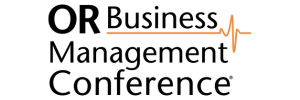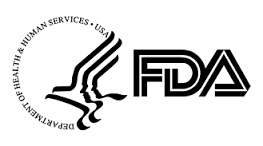
Editor's Note Psilocybin therapy significantly reduces symptoms of depression in frontline clinicians who experienced psychological distress during the COVID-19 pandemic, according to a randomized clinical trial published December 5 in JAMA Network Open. The trial enrolled 30 clinicians, including physicians, advanced practice practitioners (APPs), and nurses, who provided frontline care…

Editor's Note Although the term “value-based care” dates back nearly two decades, payer reimbursement models too often seem more like volume-based care. In a presentation at the upcoming OR Business Management Conference, scheduled February 10-12 at the Saddlebrook Resort in Tampa, Florida, economist Susanna Gallani, PhD, will delve into how…

Editor's Note Findings from The ARRC II study show using advanced recovery room care (ARRC) for medium-risk surgical patients significantly reduces 18-month postoperative mortality compared to standard ward care. As detailed in a December 11 research letter in JAMA Surgery, this benefit appears linked to minimizing early postoperative complications, which…

Editor's Note Balloon catheters for atrial fibrillation patients and implantable radiographic markers were the subjects of separate US Food and Drug Administration (FDA) Class 1 recalls—the most severe category indicating risk of serious injury or death—announced on December 18. The first recall involves Boston Scientific’s POLARx Cryoablation devices. Higher-than-anticipated reports…
Editor's Note Bariatric surgery programs nationwide have reported a 20-25% decline in surgical volumes over the past year amid the rising use of glucagon-like peptide-1 (GLP-1) medications for obesity, OR Management News reported Dec 2. Although the connection between the decline and the popularity of the drugs cannot be definitively…

Editor's Note Older cancer patients undergoing major abdominal procedures at Roger Williams Medical Center in Providence, Rhode Island, significantly benefitted from the American College of Surgeons (ACS) Geriatric Surgery Verification (GSV) program, Medical Xpress reported December 10. Citing a study published in the Journal of the American College of Surgeons,…

Editor's Note The Leapfrog Group has announced its 2024 Top Hospital and Top Ambulatory Surgery Center (ASC) Award recipients December 17, honoring facilities for standout performance in patient safety and care quality. This year, the national employer watchdog organization named 134 hospitals and 31 ASCs as winners of the national…

Editor's Note Using virtual reality glasses (VR-G) to watch immersive 360-degree nature videos significantly reduces preoperative surgical fear in patients undergoing open-heart surgery, according to a randomized controlled study published November 29 in the Journal of Perianesthesia Nursing. However, anxiety levels were not markedly affected, suggesting targeted efficacy in fear…

Editor's Note Artificial intelligence (AI) enabled technologies present the greatest technology risk to healthcare organizations in 2025, according to the latest list from ECRI, a nonprofit organization dedicated to safety in the industry. As detailed in the organization’s December 4 announcement, the annual report highlights critical risks that healthcare organizations…

Editor's Note The US Food and Drug Administration (FDA) designated Cardinal health’s recall of certain lots of the Monoject U-100 1 mL Syringe Luer-Lock with Tip Cap Soft Pack a Class 1, the most severe recall category indicating serious risk of injury or death. The product is designed to administer…